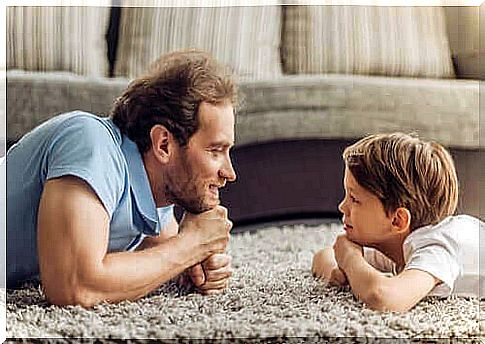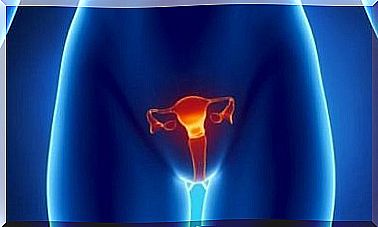Parenting Styles: What Kind Of Parent Are You?

Parenting styles are relational constructs that relate to the conscious and voluntary and involuntary behavior of parents. It is also about the attitudes, gestures and verbal and non-verbal messages to their children and the strategies (technical, tactical and communicative) they use.
No institution teaches people to be parents. Instead, people learn to fulfill this role through their upbringing. It is also characterized by the actions and corrections that parents consider to be correct. The family in which a person has grown up is therefore the benchmark when it comes to raising children.
However, parents are also mirrors of their children. In other words, all parenting styles also imply an involuntary transfer of information. Parents are therefore more transparent than they think. They convey many things including:
- norms and values
- beliefs
- forms of emotional expression
- communication styles
- commands
Parenting Styles

Psychologist Diana Baumrind developed one of the best-known theories of parenting styles. She classified parents into four categories:
- Authoritative. These parents provide standards and guidance without being overbearing.
- Authoritarian. These parents tell their children exactly what to do.
- tolerant. These kind of parents let their kids do whatever they want.
- negligent. These types of parents do not consider their children and their interests are focused in areas other than their children.
Authoritative Parents
This kind of parent is balanced and maintains open communication with their children. This is the best way to help children understand information. They are also demanding, responsive and focused on their children.
In addition, they want their children to become autonomous and mature people. In addition, they understand the feelings of their children and they help the children to learn to control them.
In general, they are not that authoritarian. This allows the child to explore the world more freely and they can make their own decisions based on their own ideas.
By supporting their children’s initiatives, these types of parents enable them to solve the problems they face on a daily basis. This leads to autonomy.
When they punish their children, they explain the reasons for the punishment, which are usually not harsh or arbitrary. This is because, although they usually forgive, they try to teach rather than punish. This can therefore lead to children with a higher self-esteem and more autonomy.
This parenting style also establishes clear rules and limits. In addition, children can develop their independence. Moreover, these parents expect mature behavior from their children, but always according to their age.
In other words, they should behave according to their stage of development. They value their children and are attentive to their needs, concerns and interests. For these reasons, experts consider it the best of the parenting styles.
Authoritarian Parents
These parents are not receptive and have high expectations of their children. They also impose a totalitarian regime characterized by high expectations of respect for family rules. So there is little open dialogue between these parents and their children. In other words, children should not question an assignment.
Moreover, this parenting style is restrictive and these parents punish their children if they do not meet their expectations. They also expect their children to respect the work and effort they put in raising them.
They do not promote dialogue and sometimes dismiss it as a disciplinary measure. For example: “Don’t talk to me until you do as I have told you.” Often the only explanation they give their children is “because I said so.”
In addition, they are less sensitive to their children’s needs and are more likely to hit or yell at them rather than discussing the problem.
Children who go through this type of upbringing may have fewer social skills. That’s because their parents usually tell them what to do, rather than letting them choose.
These parents demand discipline without giving their child any autonomy. They consider obedience to be a virtue and so they prefer punishment.
Permissive Parents

These types of parents are very sensitive to the needs and desires of their children. Nor do they tend to have too many expectations regarding their children’s behavior.
The parents are very involved in this parenting style. However, they do not demand much from their children and do not have much control over their lives. The lack of boundaries does not allow the children to gain self-control.
Children of permissive parents are often immature, have no control over their impulses and are not socially responsible. In other words, they tend to be more impulsive and can become social outcasts during adolescence.
Also, these children do not learn to direct their own behavior and always expect to get away with whatever they do. This parenting style often results in annoying and spoiled children who demand things from others to get what they want.
Negligent Parents
These parents are neither demanding nor flexible. They are also cold and usually not involved in the lives of their children. So they don’t demand or set boundaries and don’t let the children take responsibilities.
Children of neglectful parents believe that other aspects of their parents’ lives are more important to them than they are.
Neglecting parents often ignore the emotions and opinions of their children. In addition, they do not support them, but instead limit themselves to meeting their basic needs such as:
- food
- housing
- Education
Often they are emotionally absent and sometimes even physically. That is, there is no communication between the parents and their child, even when they are physically present. In addition, they are not sensitive to the needs of their children and do not expect them to behave in a certain way.
Children raised in a neglectful environment can have emotional and behavioral problems as adults. The lack of affection and advice in these children and teenagers has very negative effects on their development.
Therefore, they may feel insecure, devalued and dependent. They have trouble socializing and often have low frustration tolerance.
Specific types of parenting styles

Regarding specific types of parenting styles, psychologist Marcelo Ceberio says the following:
“While working with teens, I have seen many parental quirks in conversations with parents. Based on Baumrind’s parenting styles, I can identify different parent types. However, you should know that most parents combine different types, which makes parenting somewhat arbitrary.”
Below we will discuss the different parenting styles that he has distinguished on the basis of his many years of experience.
Parents with guilt
There are parents who feel guilty when they set boundaries. They want to be recognized and loved by their children. They believe that saying “no” will lead to rejection.
Motivational Parents
These parents encourage their children to explore their options. They also value and motivate their children.
Too demanding parents
They always talk about what their children have not achieved. So they do not appreciate what they have done, but are only focused on what they have not achieved. This way of talking consists of implicitly devaluing their performance.
Authoritarian Parents
They are dictators who do not explain the reasons behind their borders and orders. What their children want doesn’t matter. Instead, they only focus on what they believe is best for the kids.
Timely Borderline Parents
Mothers and fathers who set effective, clear, flexible and explained boundaries.
Over-Giving Parents
These are parents who believe that giving, delivering, and meeting all their children’s needs and comforts ensures their proper development.
Unlimited Parents
Parents who think excessively about what their children want and don’t hold back their ideas. In other words, they set no limits. They tend not to lead their children and eventually come under the authority of their own children.
Demanding Parents
These parents need their children’s affection and recognition, wanting to please their children and be valued by them. They are convinced that the best place for their children is at home.
Overprotective parents
They overprotect their children and do not encourage their independence. Also, they are actually afraid that something might happen to them. They act and do anything for their children.
Projecting Parents
Parents trying to shift their frustrated desires onto their children. They project onto their children the things they couldn’t do themselves. They do not listen to the wishes of their children.
Giving Parents
Parents accompanying their children. They give them advice but also the freedom to make their own decisions. They also give them material things, for example, as a stepping stone to independence. They know they have to let go of their children.
Almighty Parents
These parents believe they can do it all. They provide their children with everything they need and more. They are convinced that this is the best way to raise their children.
Communicating Parents
They prioritize communication and explain what is implied tacitly in the family. They do not pressure their children. Instead, they respect their children, ask questions, and avoid taking things for granted.
Limitless Parents
They encourage freedom and independence without determining their children’s actual emotional world or maturity to become independent.
Appreciative/Supporting Parents
They are very supportive emotionally. In other words, they express affection and appreciation with words and their attitude.
Unhealthy Parenting Style Combinations

Many children grow up with two parents. These may adopt different and even opposing parenting styles. Below we discuss the unhealthy combinations that parents can form.
Limitless and omnipotent
Not only do they encourage unlimited freedom, but they also give their children everything they want and don’t let them grow. For example, they can give an apartment to their child so that they can live independently, but pay all costs for this. Their children often fall into a trap because they encourage independence but at the same time meet all their needs.
The bad and the good
It can be a combination of an authoritarian parent and a culpable parent. They set extreme and rigid boundaries and orders and regularly punish the children. On the other hand, the other parent protects the children and justifies their behavior. This is a triangle that favors coalition building.
Admissible culpable
They don’t allow unlimited actions and don’t feel guilty if they don’t set limits. Thus, they become their children’s children. In other words, this establishes an inverted hierarchy. The children dominate and the parents are powerless.
Demanding projectors
Not only do they neglect their children and their desires or aspirations, but they are also demanding without even knowing what their children want and can do. They usually focus on what their children are missing according to their parameters. The characteristics of authoritarian parents further aggravate the picture.
Thus, a supportive and functional parent is one who promotes growth, autonomy, communication, affective expressions, and clear boundaries. So they have the following characteristics:
- valorise
- Distinctive Givers
- Productively demanding
- Timely border agreements
- Communicators
Far from the utopia of ideal and good parenting, raising children is synonymous with learning every day.









